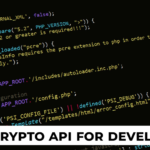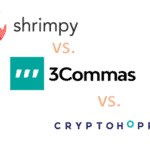Key takeaways:
- Samsung and the Bank of Korea will work together to make it possible to use Galaxy watches and smartphones to make offline CBDC payments.
- The agreement allows the IT giant to use Samsung’s advanced security technology in digital currency.
Tech giant Samsung Electronics and the central bank of South Korea have teamed up to study Central Bank Digital Currency (CBDC) for use in offline transactions.
The Bank of Korea (BOK) and Samsung signed an agreement on May 15 to conduct research on offline CBDCs. Both parties will work together to investigate the offline capabilities of the central bank’s CBDC.
Samsung also took part in the BOK’s 10-month CBDC simulation experiment research’s second phase, which focused on the retail application of CBDCs. The BOK’s initial examination of CBDC examined its fundamental operations, including issuance, distribution, and redemption.
The most recent MOU aims to test the South Korean CBDC’s ability to perform payments and transfers using near-field communication (NFC) on Samsung mobile devices as opposed to the Internet. The agreement allows the IT giant to use Samsung’s advanced security technology in the field of digital currency, according to Won-Joon Choi, vice president of Samsung Electronics. And he said:
“Based on cooperation between the two companies, We expect to be able to make a great contribution to the development of global offline CBDC technology.”
Samsung is said to have acquired hardware certification for the security international standard criteria assessment assurance level six grade, which entails seven levels of functional security requirements, as part of the collaboration.
Samsung reportedly forbade employees from utilizing generative artificial intelligence (AI) tools like ChatGPT on any Samsung-owned devices or internal networks, despite a strong interest in CBDCs. The use of productive AI technologies has also been prohibited by central banking institutions like JPMorgan, Bank of America, Goldman Sachs, and Citigroup.
In answer to the Democratic Party’s (DP) request, Representative Kim Nam-Kuk of the main opposition party in South Korea has agreed to liquidate his bitcoin holdings. This choice was made in response to claims of potential wrongdoing and a deemed conflict of interest brought on by his sizable interests in virtual currency.
Florida’s governor, Ron DeSantis, recently officially made Central Bank Digital Currencies (CBDCs) unlawful in the state. The law also protects Floridians against the Federal Reserve’s impending introduction of a digital currency this summer.










